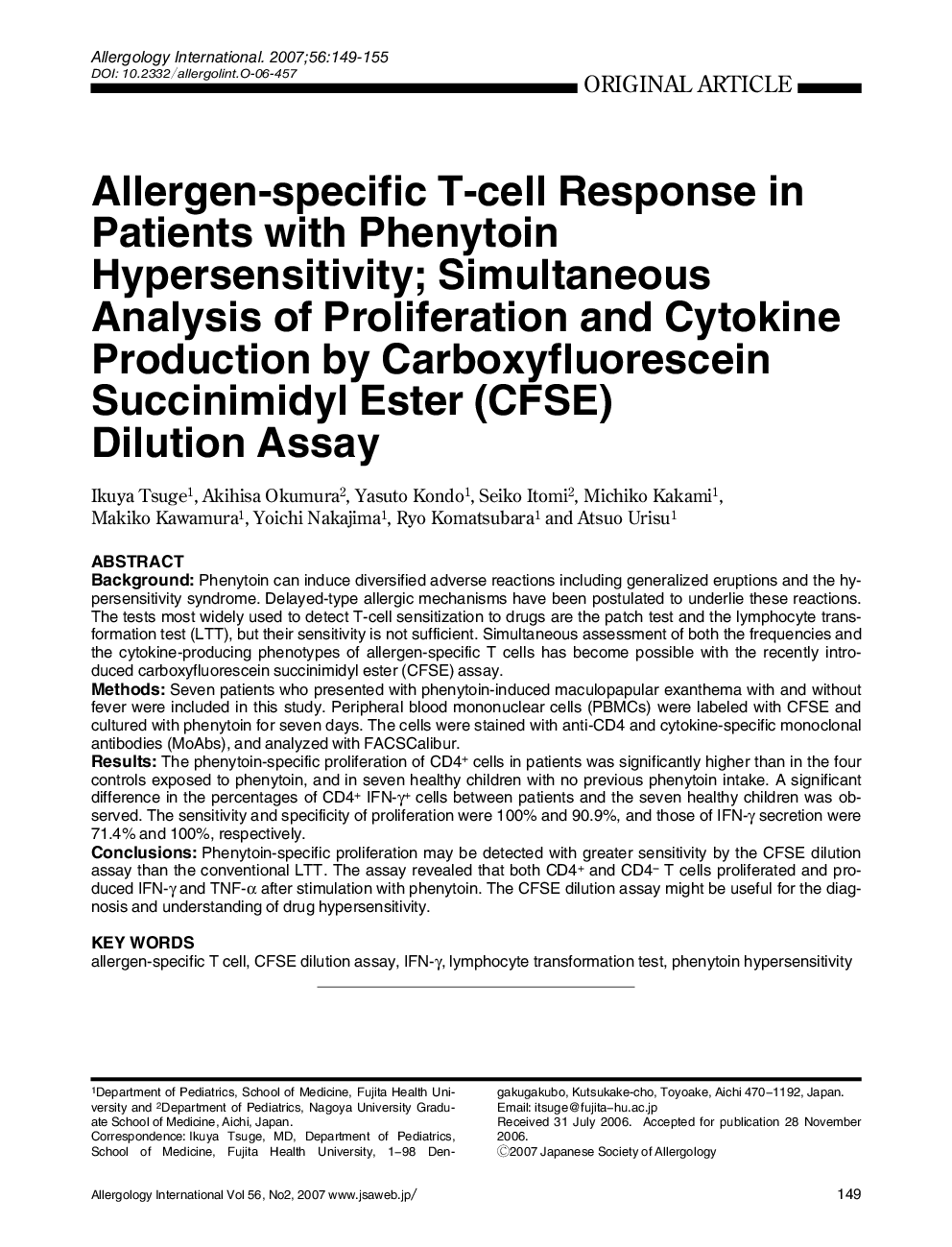| Article ID | Journal | Published Year | Pages | File Type |
|---|---|---|---|---|
| 3341229 | Allergology International | 2007 | 7 Pages |
ABSTRACTBackgroundPhenytoin can induce diversified adverse reactions including generalized eruptions and the hypersensitivity syndrome. Delayed-type allergic mechanisms have been postulated to underlie these reactions. The tests most widely used to detect T-cell sensitization to drugs are the patch test and the lymphocyte transformation test (LTT), but their sensitivity is not sufficient. Simultaneous assessment of both the frequencies and the cytokine-producing phenotypes of allergen-specific T cells has become possible with the recently introduced carboxyfluorescein succinimidyl ester (CFSE) assay.MethodsSeven patients who presented with phenytoin-induced maculopapular exanthema with and without fever were included in this study. Peripheral blood mononuclear cells (PBMCs) were labeled with CFSE and cultured with phenytoin for seven days. The cells were stained with anti-CD4 and cytokine-specific monoclonal antibodies (MoAbs), and analyzed with FACSCalibur.ResultsThe phenytoin-specific proliferation of CD4+ cells in patients was significantly higher than in the four controls exposed to phenytoin, and in seven healthy children with no previous phenytoin intake. A significant difference in the percentages of CD4+ IFN-γ+ cells between patients and the seven healthy children was observed. The sensitivity and specificity of proliferation were 100% and 90.9%, and those of IFN-γ secretion were 71.4% and 100%, respectively.ConclusionsPhenytoin-specific proliferation may be detected with greater sensitivity by the CFSE dilution assay than the conventional LTT. The assay revealed that both CD4+ and CD4− T cells proliferated and produced IFN-γ and TNF-α after stimulation with phenytoin. The CFSE dilution assay might be useful for the diagnosis and understanding of drug hypersensitivity.
